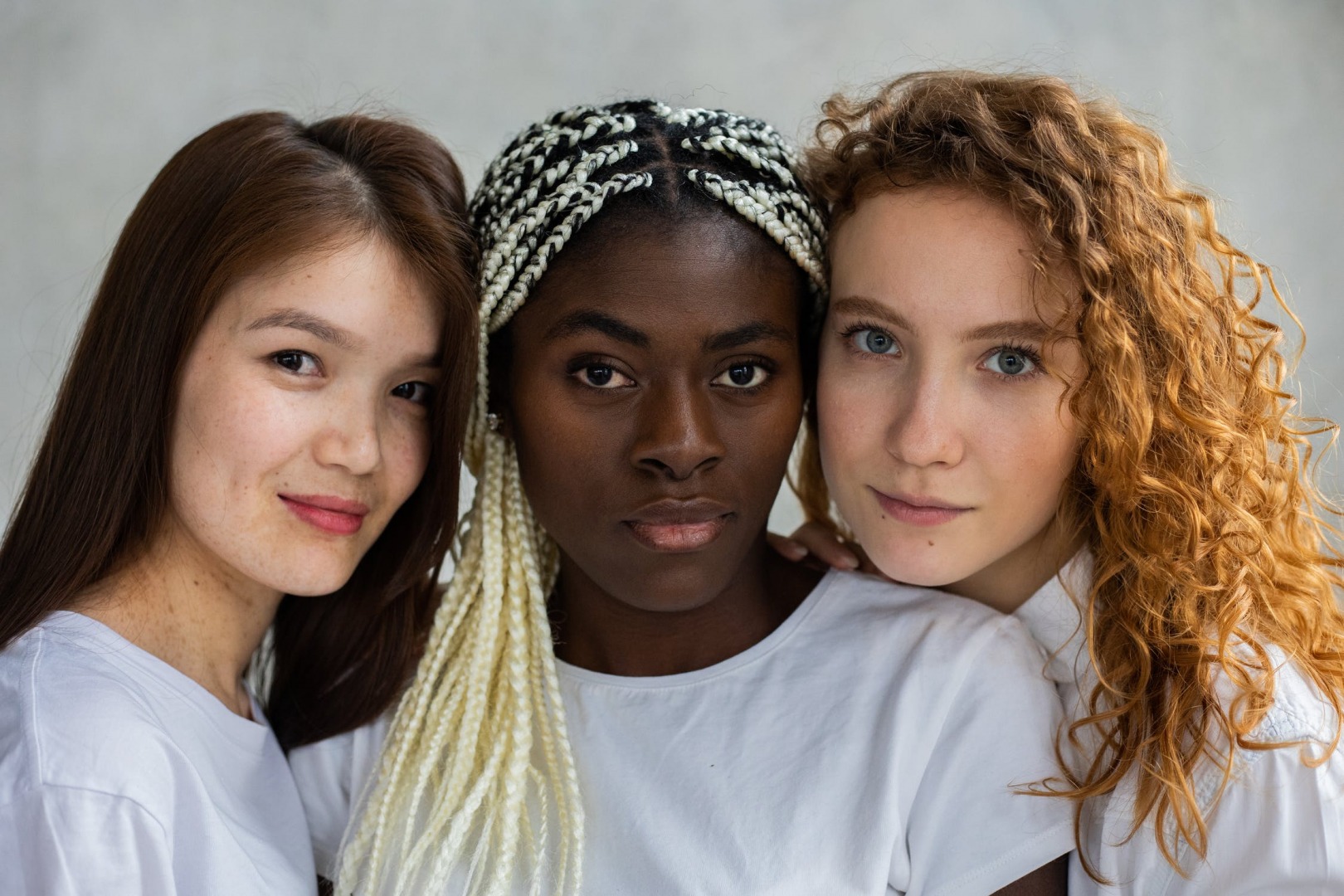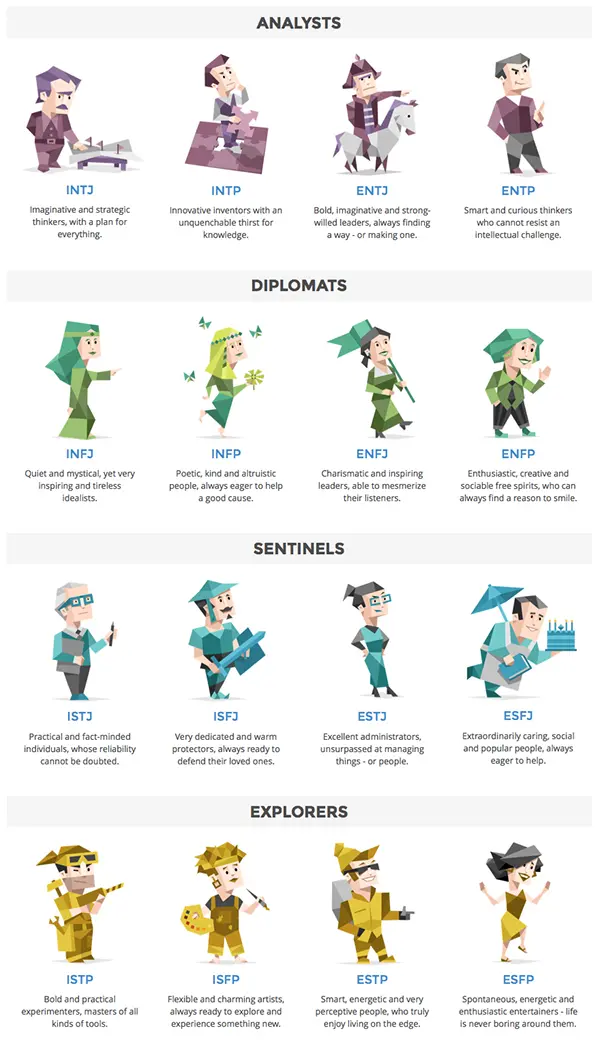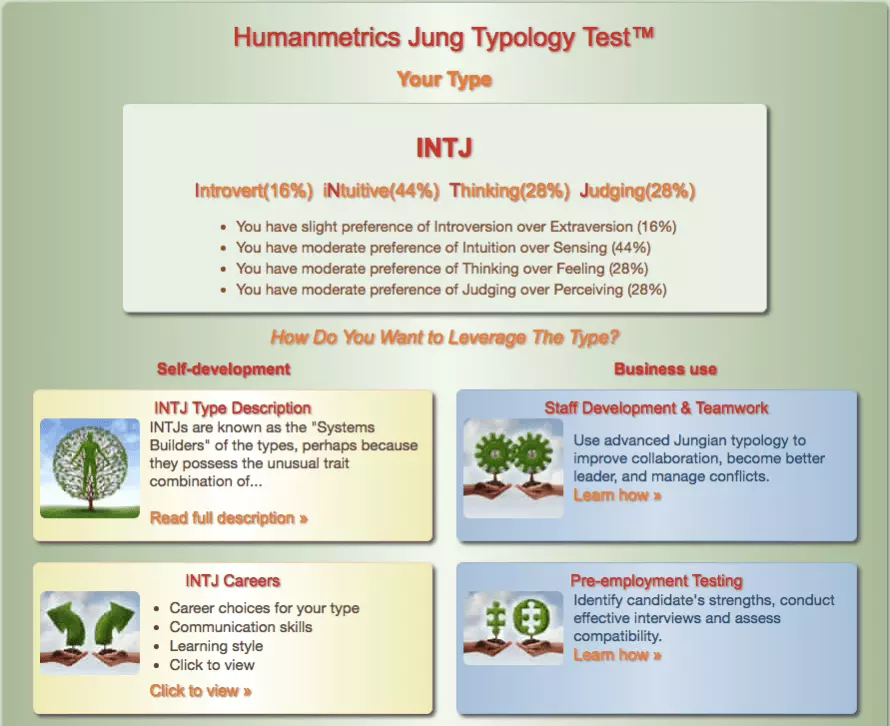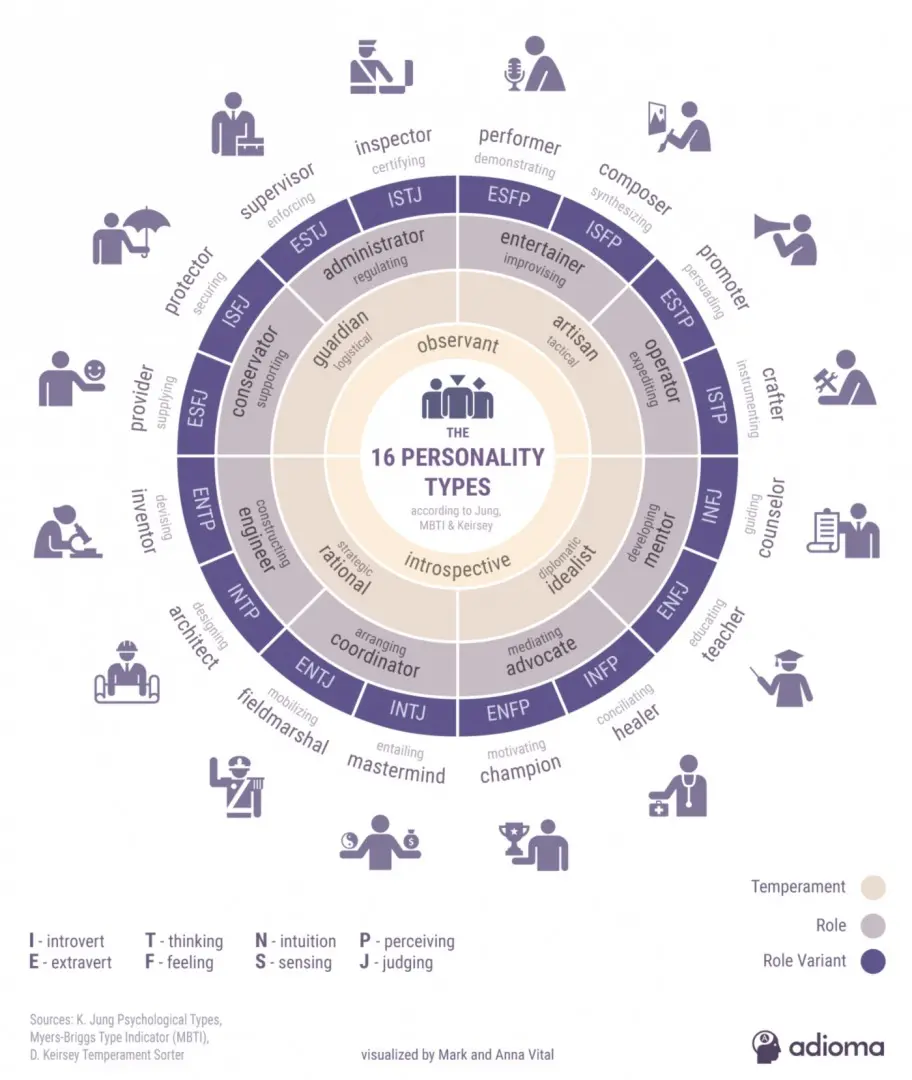Comments (1)
Mariely
"it gives us a way to find others who feel alone in similar ways"
This is what brought me to be a certified MBTI® practitioner. I believe it is an amazing tool to help us understand and validate ourselves and others.

We are all different. Each and every one of us is rare. No-one is insignificant.
Each of us is a unique strand in the intricate web of life and here on earth to make a significant contribution. Deepak Chopra

Source: Behance
I discovered something interesting in the past few days, as I learnt about Myers Briggs, a personality indicator based on Carl Jung’s theory — that states that we all have innate tendencies that direct how we see the world and how we function in it.
The test classifies one into 16 different personality types and I am an INTJ: Introverted, iNtuitive, Thinking, Judging. To elaborate, INTJs are introverted, they focus on the bigger picture, love to form connections between ideas, prefer to make decisions based on objective logic, and like closure and structure.
And, well, they have also been described as “masterminds“, just saying.
Debate over the accuracy of Myers-Briggs personality test is for some other time and place. Also, some observers point out that if you give the test enough times, chances are, you’ll be able to adjust the answers to fit yourself into any type you want.
However, to back my certainty of being an INTJ — I’ve taken the Myers Briggs several times and have happened to be an INTJ every single time, despite having no idea whether or not I gave the same answers every time. And honestly, the description of the INTJ probably fits me more perfectly than any other type.

And why do I say that it makes me rare? To give you an idea –
Out of the 16 types, one of the rarest is the INTJ type, with INTJ’s forming just 2% of the population. Even rarer are women in this group, who make up only 0.8%.
It is said that only 4 in 500 women are INTJs. And in the Myers-Briggs world, INTJ women are the rarest breed — the rational, strategic, cerebral goddesses.
No, I’m not using this as a means of self-aggrandizement. I do realize — rarer does not necessarily mean better. But it helps to know your personality type and understanding it holistically can have several tangible benefits. Let me explain how.

Source: Adioma
On some level, we all feel like that we don’t fit into this chaotic world, don’t we? This has to be one of the most commonly expressed sentiments on personality assessment websites. Everyone rues that they had always seen things differently and that reading up about their personality taught them why — and made them realize that it was really okay. They weren’t aliens, because there were others who felt the same.
This should teach us something else as well: most of us feel different, too different to belong to this world. We feel isolated, like we’re in a world that no one else seems to understand. Like we are set apart in some way that can make us targets for ridicule or deliberate isolation.
The truth is, we are all different and we all struggle in some or the other way. Those “normal” people would be echoing similar thoughts on a different website. Sure, there might be people out there who fit the stereotype, who never doubt themselves, always fit in, who are content with themselves and their lives — but I’ve never met them. I have, however, met people who, later in their lives, described their former years as confusing and isolating. They wore a mask so that they could fit in, when their real self didn’t.
Perhaps that is the true beauty of personality tests, of categories such as “INFP”, “INFJ” and “INTJ”, it gives us a way to find others who feel alone in similar ways. Once you’re aware, suddenly you won’t feel so alone. Even if personal development had no other perks — even if there were no other rewards down the road of understanding and developing the self — that in itself would be enough for you to validate yourself.
Learning about your personality type helps you find people who can understand and articulate the different parts of yourself that don’t fit into any of the stereotypes. It’ll give you real life stories, of how people like you found a way through it into personal and peer acceptance. Stories are important because they are the way we make sense of the world and enforce cultural and societal norms.
This is my message to anyone who feels alone in the uniquely lonely way of an introvert, a highly sensitive person, an INFJ, or an INTJ: Read up articles written by people of the same type and see yourself, in the words and emotions of complete strangers.
And reach out.
Because none of us are alone in any of this. After all, even being one-in-a-million means, there are 7600 individuals in the world just like you !
"it gives us a way to find others who feel alone in similar ways"
This is what brought me to be a certified MBTI® practitioner. I believe it is an amazing tool to help us understand and validate ourselves and others.
Priyanka is a multi-disciplinary practitioner in the banking, risk and financial technology space. Backed by a coveted blend of robust technical background and acquired competencies in the BFSI domain, she can intelligently connect the dots between the conventional banking industry needs, customer pain points and contemporary digital solutions. She fervently aspires to drive innovations to the financial services industry - by leveraging disruptive technologies like Social, Mobile, Analytics and Cloud (SMAC), Application Programming Interfaces (APIs), Big Data, Machine Learning (ML), Deep Learning (DL), Artificial Intelligence (AI), Augmented Reality (AR), Virtual Reality (VR), Internet of Things (IoT), Chatbots, Blockchain, CryptoCurrencies, Bitcoin (BTC), Ethereum (ETH), Biometrics & Wearables - that would eventually serve to improve the overall financial inclusion & innovation.
Leave your comments
Post comment as a guest